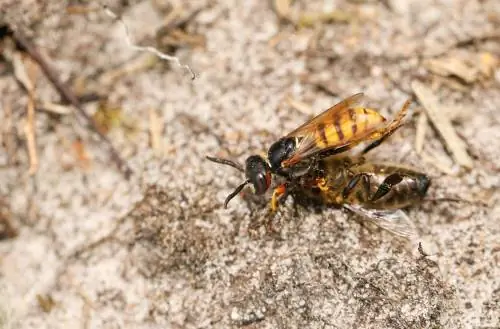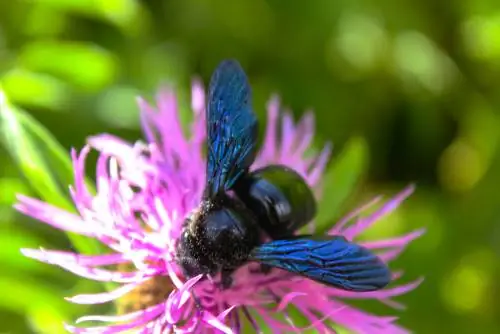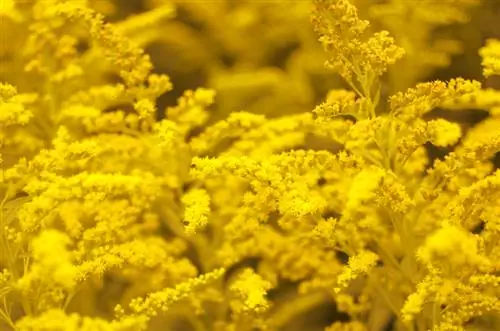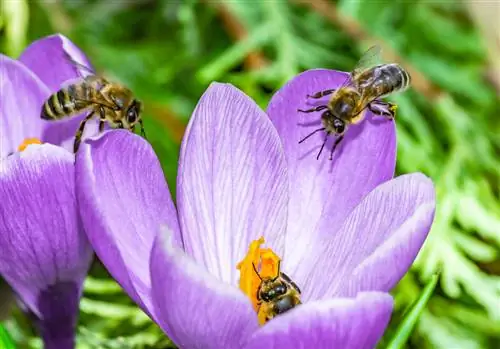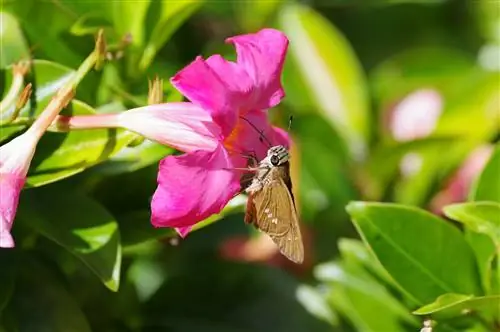- Author admin [email protected].
- Public 2023-12-16 16:46.
- Last modified 2025-01-23 11:22.
The ever-growing guild of beekeepers and hobby beekeepers not only deals with Varroa mites, but also with wasps. What drives relatives into the beehives is usually motivated by thieves. Whether you should do something about the false fifties depends primarily on the bee colony.
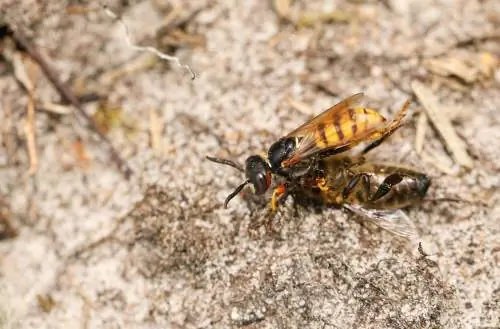
What to do if there are wasps in the hive?
If wasps appear in the hive, the cause is usually the theft of bee larvae or honey. It is helpful to make entrance holes smaller and to ensure that the bee colony is well supplied and strengthened by providing food and mite prevention.
Unwelcome relative visit
We know it ourselves: Some relatives invite themselves, even if the relationship is rather critical. Maybe because they want something very specific from you. This is also how you could describe the phenomenon that sometimes takes place in beehives. Bees are often visited by wasps. And of course not because the two species of stinging insects get along so well. Rather, as is so often the case in the animal world, it's about enjoyment. Wasps are primarily after the bee larvae, but also like to snack on the precious honey.
Wasp species that can be dangerous to honey bees are:
- Hornets
- Beewolf
- German wasps
- Common wasps
The beewolf feeds almost exclusively on honey bees, which is why it gets its name. It can be very problematic for bee populations. However, it hunts its victims when collecting nectar on flowers - it does not penetrate the beehives.
Anders hornets, German and common wasps. They try to break into the bees' homes every now and then to plunder. Since each bee colony posts guards at the hive's entrance holes, entry is not easy. In addition, once successful intruders in the prey are usually violently attacked and expelled from the house.
Usually. Because bee colonies have different levels of well-being. Depending on the size and, above all, he alth of the population, a colony may also be too weak to ward off intruders. Even in cold temperatures, bees are at a disadvantage compared to wasps, which are more temperature-resistant and therefore more agile.
Help keep the peace in the house
In order to help the bees ward off unwanted wasp visits, it makes sense to make the entry holes on the hive smaller. A size of 0.8 x 1 cm per hole makes it significantly more difficult for the wasps to penetrate inside. Basically, you should also ensure that the bee colony is well cared for and strengthened through careful feeding and regular mite prevention. Then they can also defend themselves well.

